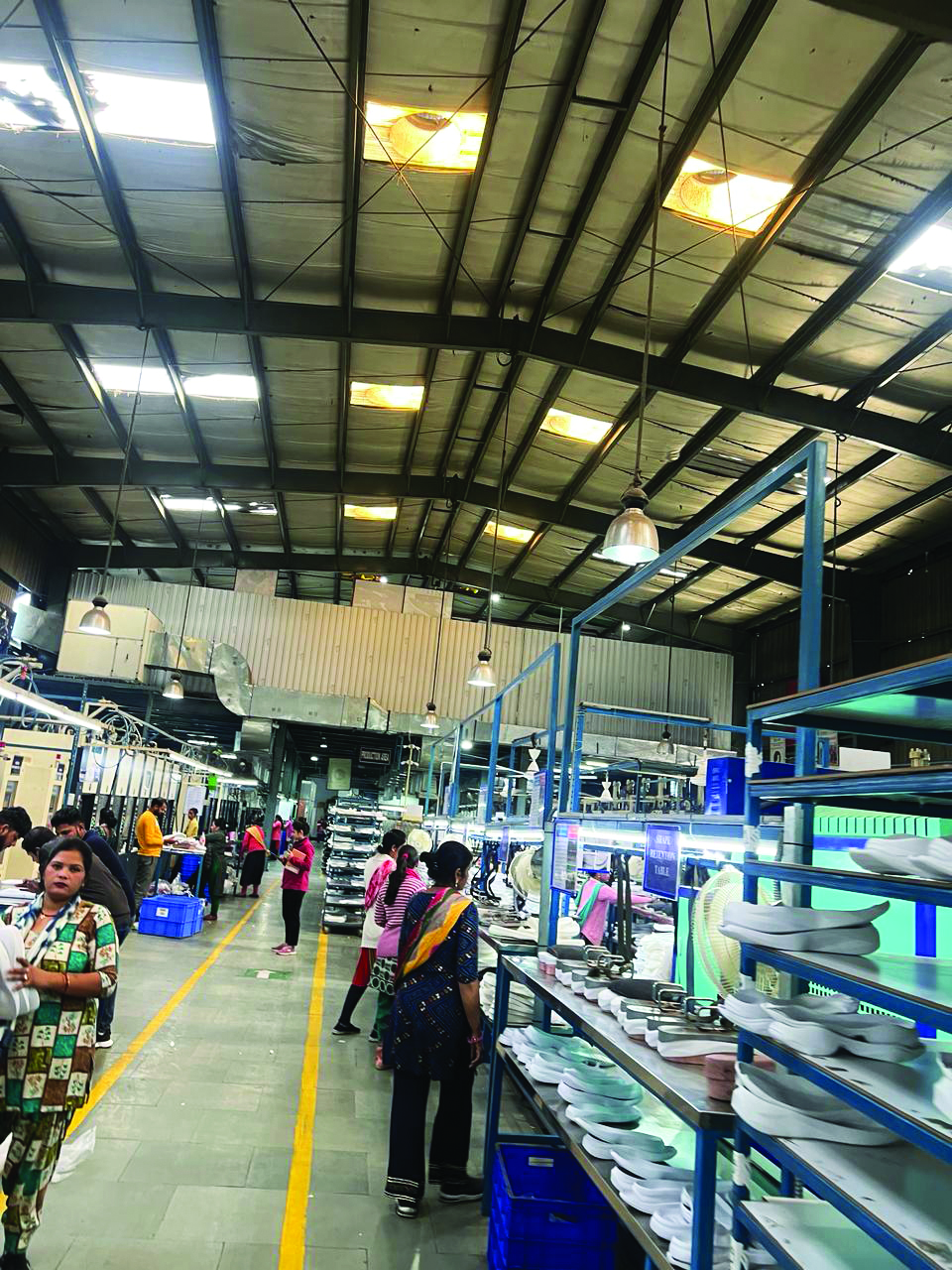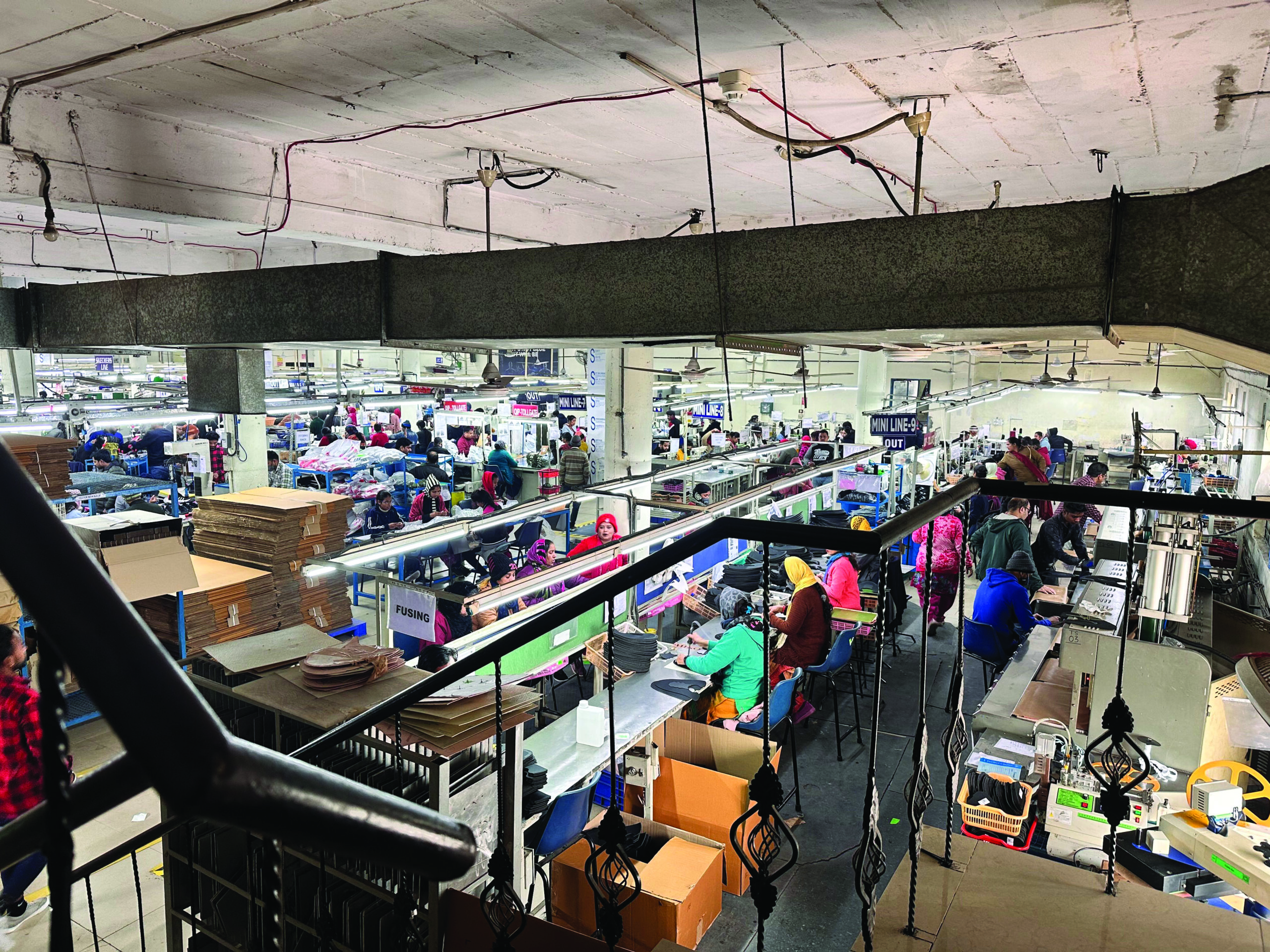With India’s largest footwear contract manufacturer in tow, Agilitas Sports Pvt. Ltd. is all geared up to score big in India’s athleisure segment. Co-founder Abhishek Ganguly shares the game plan
New Delhi: As the head of Puma in South Asia, Abhishek Ganguly for years had maintained that there is no reason why there cannot be a homegrown Indian athleisure brand with $1 billion in sales in the years to come.
Last year, Ganguly quit Puma after almost 18 years with the company to strike out on his own. Ganguly is now taking a stab at that goal with his independent venture Agilitas Sports.
“In 7-8-9 (years),” Ganguly said when asked about when Agilitas could clock a billion dollars in sales. “I would not shoot myself if it takes 10 (years),” he added.
“Having a billion-dollar revenue Indian sports company, I think that there is the opportunity that lies… I can tell you that (we are) creating Agilitas as India’s largest sports platform, which is also globally relevant at some point in time, but of course, focused on India, to begin with,” he explained. Some investors are voting with their wallets to Ganguly’s optimism.
So far, Agilitas has raised Rs 530 crore from investors in two rounds of funding, including Rs 400 crore from Convergent Finance LLP funds, Rs 100 crore from Nexus Partners Ventures and another Rs 30 crore from family, friends and the founders.
In September 2023, Agilitas fired the first salvo by acquiring Dehradun-based Mochiko, India’s largest manufacturer of sports shoes, for an undisclosed amount in an all-cash deal that was funded from the money the newbie had raised in 2023 from investors. Mochiko—that contract-manufactures footwear for global brands including Puma, Adidas, Reebok, New Balance, Skechers, Asics, Crocs, Decathlon, Clarks and US Polo among others—gave Agilitas a head-start: The 15-year-old company has factories in Uttarakhand and Noida, outside of New Delhi and employs more than 10,000 people.
Mochiko reported a revenue of Rs 642 crore in the fiscal year 2023 and Ganguly said it is expected to generate around Rs 800 crore in the fiscal year ending March 2024. “It’s a good runway, which will support our business,” Ganguly said.
Multi-pronged Strategy
Agilitas wants to be both a business-to-business (B2B) and a business-to-consumer (B2C) player. It will manufacture and supply footwear and athleisure products to other businesses with Mochiko.

At the same time, the Bengaluru-based start-up will also put together a handful of consumer-facing brands. By the end of the year, Agilitas plans to build a platform to sell its brands as well. It is also in talks with global brands to secure manufacturing and distribution licenses for India.
Agilitas also plans to acquire existing Indian brands, which would give the company a head-start rather than going through the tedious and difficult task of building a new brand from
scratch.
“I have been debating about this but creating brands takes a lot of time. It is not just about resources and capital. It is also about the gestation period and brand equity, of the brand wiring up in your mind—somewhere at the back of your mind even if it is not in the front of the mind,” he said in an interview in Bengaluru.
“It always helps if you can buy a brand which has heritage value where the brand is rooted in sports and has been associated with global athletes…then there is a lot of credibility that
is already established.”
Ganguly said Agilitas is not looking at a gamut of brands to get a foothold in India’s burgeoning sportswear and athleisure market. He said Agilitas has already “wired up” a partnership with one global brand that the company plans to announce in the coming months.
He declined to name the brands but said, “I am not looking at building 10 brands, but I am also not looking at building just one brand,” he said spelling out his plans. “So, the sweet spot would be about building at least 3-4 brands.
Because I want to expand, I want to have at least today’s level at a target, a total addressable market of at least 80-100 million consumers in Indian and that cannot be done by one brand.”
The Playing Field
India’s sports equipment, footwear, athleisure and apparel business swelled 122% over the years to reach a total of Rs 218 billion in 2022, up from Rs 98 billion recorded in 2015, as per data analytics platform Statista.
Experts said India’s athleisure and sportswear market is promising with millions of young Indians taking to sports and fitness and the growing demand for athleisure products at home.
However, the space is getting crowded with most of the Indian and global fashion and apparel brands either launching their lines or introducing athleisure products under their existing brand portfolio, especially after the pandemic that has fuelled demand for such items.

India’s largest retailers including Reliance Retail and Aditya Birla Fashion and Retail among others have also ramped up their athleisure offerings and created brands in the last two years. Then there is a flood of new-age direct-to-consumer (D2C) brands that are also chipping away at the market share, one T-shirt at a time.
“There is a white space in sportswear. India is becoming sportier—people are playing more sports, and buying more athleisure products, streetwear, travel gear, and leisurewear—it is a growth category,” Ganguly said. “If you look at the mid and premium segments, which are relevant for global brands, that pie is about Rs 15,000 crore annual market. That will also quadruple.
Then there is Rs 30,000 crore just above the unorganised space. A lot of that share is expected to come to organised retailing. It’s still quite fragmented. That is the Rs 30,000 crore annual business. At least 65%-70% of this opportunity is footwear.” As promising the potential for sports goods and athleisure in India might sound, it is littered with potholes, analysts said.
“They have an interesting strategy where they acquired a manufacturing business and are trying to build a brand based on that. While it may not be necessary to have your manufacturing set up to build a brand, it definitely doesn’t hurt,” said Harminder Sahni, founder of retail consultancy Wazir Advisors.
“However, I would be curious to understand how they’re planning to grow their manufacturing business, which is the core business as of now and how they’ll split the management focus and capital between brand and manufacturing business,” he added.
Regarding building the brand, Sahni said that the Indian market is short of brands in every single segment and many more brands are needed. “So good luck to them as I think it will be as challenging and exciting as it is for anybody else. Capital helps, experience supports but at the same time market reality is that it’s a hard market to build a brand from scratch,” he concluded.


